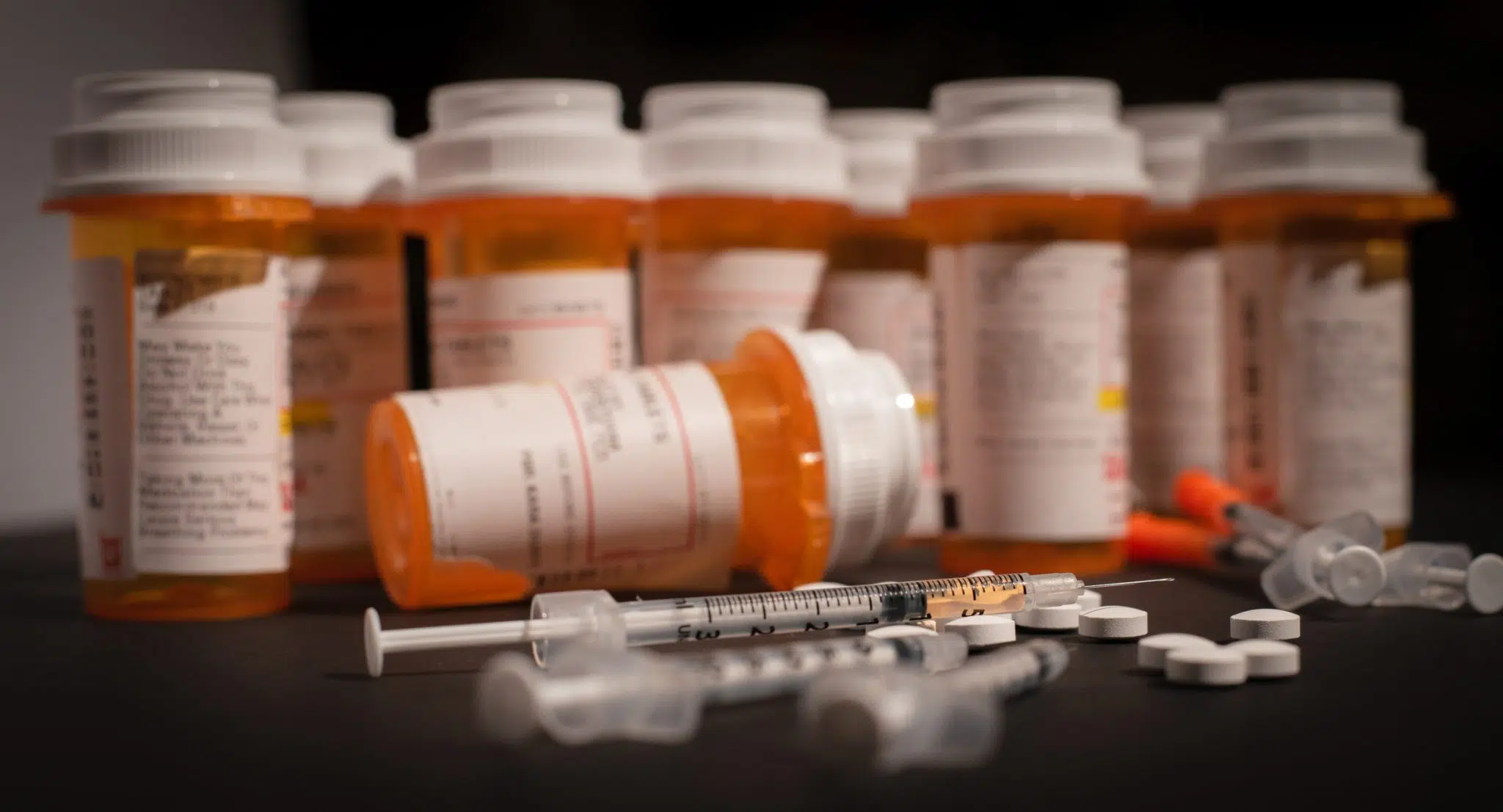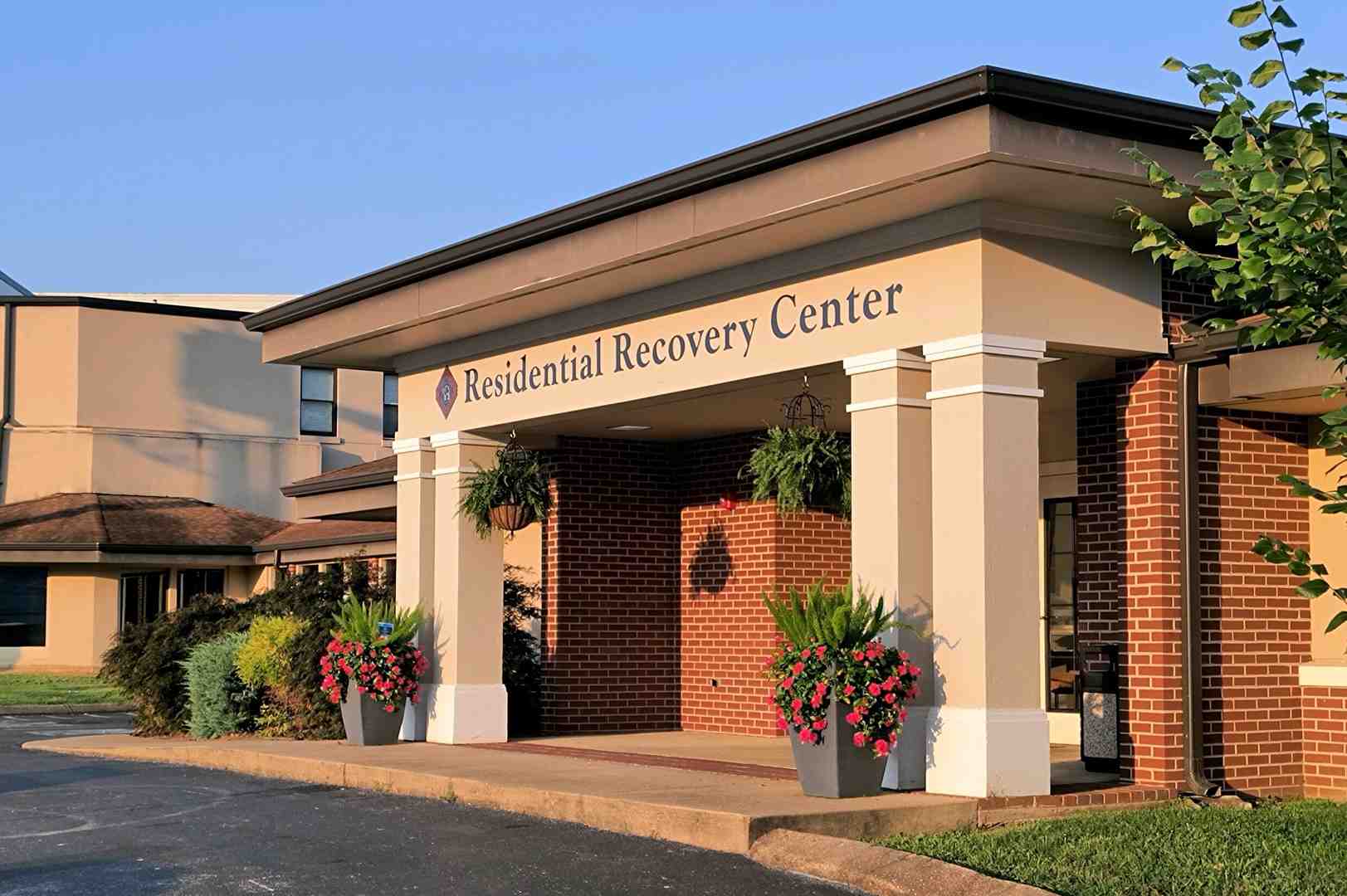
Opioid Addiction in Jackson County is fighting back. This article covers the local programs, support resources, and community efforts aimed at overcoming the crisis.
Key Takeaways
- Jackson County is working hard to combat opioid addiction through community outreach, partnerships, and increasing access to treatment and support resources.
- There’s a significant increase in opioid overdoses, prompting urgent action to tailor intervention strategies to the community’s specific needs.
- Expanding healthcare coverage, including Medicaid, is crucial for improving access to treatment and preventing future opioid misuse in Jackson County.
Jackson County’s Battle Against Opioid Addiction
Jackson County faces significant challenges related to opioid addiction, including high rates of overdose deaths and a growing number of cases of opioid use disorder. Rural communities are particularly affected, experiencing limited access to healthcare and treatment resources. This crisis has prompted the county to initiate community outreach programs designed to raise awareness and provide education about the dangers of opioid misuse.
New partnerships between local organizations are being formed to enhance the availability of treatment programs and support services for those struggling with addiction. Efforts to expand access to healthcare coverage are also underway, improving treatment availability for residents. State and federal initiatives are providing funding and resources to support Jackson County’s ongoing battle against opioid addiction.
The county’s response to the opioid crisis is a testament to the power of community collaboration and the determination to create a healthier, more resilient community. Utilizing local resources and support systems, Jackson County is making significant progress in combating this devastating epidemic.
Local Statistics and Trends
Jackson County has experienced a significant increase in opioid overdose deaths over the past five years. Nearly 10% of residents reported misusing prescription opioids in the last year, underscoring the severity of the crisis. This alarming trend has had a profound impact on the community, with opioid overdose deaths becoming a significant crisis that affects all aspects of life in Jackson County.
The rising number of opioid-related incidents highlights the urgent need for comprehensive intervention strategies. Understanding these local statistics and trends allows community leaders and stakeholders to better tailor their efforts to the specific needs of Jackson County residents.
Community Impact
The opioid epidemic in Jackson County has caused severe financial and emotional strain on families. Thousands of families are adversely influenced by the crisis, altering community dynamics and creating a ripple effect that deteriorates the quality of life and rural prosperity. The impact extends beyond individual households, affecting businesses, schools, and social services.
Specialized programs for pregnant women with opioid use disorder emphasize early screening and intervention to improve maternal and infant health outcomes. Continued access to prenatal care and substance use treatment is critical for preventing complications during pregnancy. Supporting families affected by opioid addiction is crucial for fostering resilience and long-term recovery in Jackson County.
The community’s response to the opioid crisis has been multifaceted, involving various stakeholders and sectors. Addressing the broader impact of opioid addiction, Jackson County aims to create a supportive environment that promotes healthier lives for all residents.
Available Resources for Opioid Use Disorder

Jackson County offers a variety of resources aimed at helping individuals with opioid addiction, including treatment facilities and support networks. These resources are designed to meet the diverse needs of individuals struggling with opioid use disorder, ensuring that everyone has access to the care and support they need to recover.
From treatment centers and programs to support groups and counseling, Jackson County provides a comprehensive range of services to assist those affected by opioid addiction. Residents can utilize these resources to find the help they need to overcome addiction and build a healthier future.
Treatment Centers and Programs
Local treatment centers in Jackson County provide both inpatient and outpatient services tailored to those struggling with opioid use disorder. ReDiscover, for example, offers various substance use disorder treatment options, including outpatient and residential programs specifically targeting opioid use disorders. Specialized programs for pregnant women focus on prenatal care and substance abuse treatment to ensure the health of both mother and child.
The Jackson County Sheriff’s Office collaborates with local healthcare providers to offer medication-assisted treatment in jails. Additionally, a Naloxone vending machine has been installed by the Sheriff’s Office to provide free overdose reversal kits to individuals exiting the jail. These initiatives highlight the county’s commitment to providing accessible and effective treatment options for all residents.
Support Groups and Counseling
Community support groups and counseling services play a crucial role in helping individuals recover from opioid addiction. Engaging in support groups or family therapy can enhance treatment outcomes for those affected by addiction. Residents can find multiple support groups and counseling services that focus on recovery from opioid addiction in the community.
Local treatment facilities and support groups can be located through SAMHSA’s online treatment locator. Additionally, SAMHSA offers a confidential helpline for families dealing with substance use disorders, providing resources and referrals to local support services. These services are essential for supporting individuals and families throughout the recovery process.
Access to Opioid Medications
Individuals in Jackson County can access medications like methadone and buprenorphine through designated clinics for opioid addiction treatment. These medications are part of comprehensive care strategies that include counseling and support services. Recent legislation now allows practitioners with a current DEA registration to prescribe buprenorphine for opioid use disorder without needing a waiver.
Expanding access to these FDA-approved medications is crucial for treating opioid dependence and reducing overdose deaths. SAMHSA offers specific grants aimed at improving access to medications for opioid use disorder and enhancing recovery support services.
Improving access to these medications, Jackson County is making significant strides in addressing the opioid crisis.
Expanding Access to Health Care Coverage

Expanding health care coverage is essential in addressing the opioid crisis and providing necessary support to affected individuals. Recent policy adjustments aim to increase state resources for treatment and prevention of opioid misuse, improving access to necessary care. Enhancing health care coverage allows the community to better support those in recovery from opioid use disorder.
These policy changes are designed to improve access to treatment services for individuals struggling with opioid addiction. Expanding health care coverage not only supports individuals in recovery but also helps prevent future cases of opioid misuse by ensuring that everyone has access to the care they need.
Medicaid Expansion
Low-income individuals, particularly those under 138% of the federal poverty level, benefit most from Medicaid expansion, as it significantly improves their access to health insurance. Research shows that Medicaid expansion has significantly increased the number of low-income individuals who can access essential health services.
Expanded Medicaid plays a crucial role in improving health service accessibility for low-income populations. In Jackson County, Medicaid expansion is a significant component in improving health services for low-income individuals, ensuring that they receive the support they need to overcome addiction.
Health Care Marketplace Plans
Residents can utilize Health Care Marketplace plans to gain access to health coverage, especially for those whose income is above the Medicaid eligibility threshold. These plans provide affordable medical services and coverage tailored to the needs of individuals.
Health Care Marketplace plans can help individuals with incomes between 100% and 400% of the federal poverty level obtain premium subsidies to reduce their insurance costs and medical costs. Enrolling in these plans allows residents to access a range of medical services, enhancing their care and improving their overall health.
Role of Primary Care Providers
Primary care providers serve as a critical access point for patients seeking treatment for opioid use disorders. They are crucial in managing opioid use disorder by offering ongoing support and treatment options. Primary care settings are effective in providing opioid agonist therapy, showing higher patient retention and satisfaction compared to specialized programs.
Integrating opioid use disorder treatment into primary care allows providers to offer a more holistic and accessible approach to managing addiction. This integration ensures that patients receive continuous care and support throughout their recovery journey.
Integrating Behavioral Health
Community counseling services in Jackson County are designed to support individuals with behavioral health needs alongside their substance use treatments. The SAMHSA National Helpline provides a confidential and free resource for individuals seeking referrals to support groups and counseling services.
Integrating mental health services and behavioral health into primary care is essential for a holistic approach to treating individuals with substance use disorders. This integration ensures that patients receive comprehensive care that addresses both their physical and mental health needs.
Training and Education
Ongoing training for health professionals is essential for effectively managing opioid addiction and improving patient care. Training initiatives focus on improving responses to the opioid crisis and enhancing understanding of substance use disorders.
Continuing education and training programs for primary care providers are crucial for improving their ability to manage opioid use disorders. Programs exist to educate prescribers about safe opioid prescribing practices as part of efforts to reduce misuse.
Local first responders in Jackson County received training on Narcan, which significantly improved their response to overdose situations.
Federal and State Support
In 2017, over 2,000 lawsuits against opioid distributors and manufacturers were filed, resulting in settlements that included funds for local prevention and recovery efforts. Federal initiatives include the State Opioid Response grant program to enhance access to treatment for opioid use disorder.
States are intensifying efforts to enhance their behavioral health workforce in response to a long-standing crisis exacerbated by rising behavioral health conditions. The Health Resources and Services Administration provides resources, technical assistance, and training to grantees working on opioid-related issues.
Funding and Grants
The federal government provides essential funding to support initiatives aimed at combating opioid addiction. The State Opioid Response Grant program provides significant funding to address opioid-related issues, with over $1.4 billion available to support state and territorial initiatives.
Federal and state agencies offer financial resources, including grants, to support initiatives aimed at combating opioid addiction. Direct financial incentives, such as recruitment and retention grants, have been employed by states to immediately address workforce shortages in behavioral health.
Policy Changes
States that adopted Medicaid expansion showed a notable reduction in uninsured rates, with the lowest rates seen among populations over 400% of the federal poverty level. Recent policy changes have eased the requirements for primary care doctors to prescribe treatments for opioid use disorder, yet ongoing training and support for these providers remain essential.
Comprehensive behavioral health workforce plans are mandated in some states to aid in recruitment, education, and retention of professionals. These policy changes are crucial for enhancing access to treatment and support services for individuals struggling with opioid addiction.
Preventing Opioid Misuse

Community programs in Jackson County aim to mitigate opioid misuse through a variety of strategic initiatives, including targeted education and support services. Many individuals are unaware that primary care physicians can prescribe medications for treating opioid use disorder, indicating a significant gap in public knowledge.
Recent funding aims to prevent drug use among youth, highlighting the importance of early intervention. Addressing the root causes of opioid misuse and providing education and support helps Jackson County prevent future cases of addiction.
Education and Awareness Campaigns
The community in Jackson County has organized numerous educational events to raise awareness about opioid addiction. These initiatives often involve partnerships with law enforcement, healthcare providers, and local organizations. Local schools engage students through creative activities like billboard contests to raise awareness of substance use and opioid risks.
The Drug-Free Communities grant supports initiatives that educate youth about the dangers of drug abuse. Education and awareness are crucial in the fight against opioid addiction. These campaigns empower the community with knowledge and prevention strategies to tackle opioid misuse.
Prescription Monitoring Programs
Jackson County implements prescription monitoring programs to track and manage opioid prescriptions, reducing instances of overprescription. These programs enhance communication between healthcare providers regarding patient prescriptions, aiming to prevent misuse.
Tracking prescriptions through these initiatives helps reduce instances of overprescribing opioids. Prescription monitoring programs are an essential tool in the prevention strategy, helping to ensure that opioid medications are used responsibly and effectively.
Supporting Families and Children

Research indicates that family support is crucial in assisting individuals facing mental and substance use disorders. Programs for families affected by opioid addiction often include access to counseling, education, and resources that promote recovery and healthy coping strategies.
The Jackson County Substance Abuse Prevention Coalition received a $125,000 grant aimed at combating youth substance abuse. Supporting families and children is vital for fostering resilience and ensuring long-term recovery in the community.
Family Support Services
The Women and Children’s Program at ReDiscover provides treatment for mothers dealing with substance use disorders, allowing their children to remain with them. Programs in Jackson County focus on youth education regarding the dangers of opioid use, incorporating resistance training against substance abuse.
The Safe & Healthy Schools program aims to prevent early substance use initiation through educational initiatives targeting at-risk youth. Programs like SMART Moves provide age-appropriate training for youth focusing on resisting substance use and promoting healthy behaviors.
Family support services are crucial in helping families cope with the impacts of opioid addiction.
Programs for Pregnant Women
Specific programs exist to address the needs of pregnant women struggling with opioid use, ensuring they receive targeted support. These specialized support programs are crucial for ensuring both maternal and fetal health. By providing tailored care, these programs help improve outcomes for pregnant women and their babies.
Pregnant women struggling with opioid use disorder can find specialized support programs aimed at addressing their unique needs. These programs emphasize early screening and intervention to improve maternal and infant health outcomes.
Building a Stronger Behavioral Health Workforce
Enhancing the behavioral health workforce is critical in addressing the rise of substance use disorders in communities. The Health Resources and Services Administration provides various resources, technical help, and training to assist grantees in addressing opioid addiction.
Building a stronger behavioral health workforce enables Jackson County to better support individuals struggling with substance use disorders and improve overall community health.
Recruitment and Retention
Effective recruitment strategies often include offering competitive salaries and benefits to attract qualified professionals. Financial support for behavioral health education and training programs aims to improve workforce skills and increase the number of qualified professionals in the field.
Tuition reimbursement and student loan repayment programs are implemented in various states to alleviate financial barriers for individuals training in behavioral health. These initiatives help ensure a steady pipeline of skilled professionals to address the growing need for behavioral health services.
Training Programs
Training programs for health professionals focus on improving skills in diagnosing and treating substance use disorders. Research initiatives are underway to gather data that will inform training programs aimed at improving the skills of behavioral health professionals.
Investing in training ensures Jackson County’s behavioral health workforce is well-equipped to handle the complexities of opioid addiction and provide high-quality care to those in need.
Enhancing Community Collaboration
Community collaboration is essential to effectively address the opioid crisis, requiring cooperative efforts from various sectors. Jackson County emphasizes collaboration among various stakeholders to address opioid addiction effectively.
Local organizations collaborate to enhance educational efforts and expand existing resources related to opioid use. These collaborative efforts have led to increased awareness and understanding of opioid issues among stakeholders.
Partnerships with Local Organizations
Jackson County established partnerships with various local agencies to enhance community education and create new resources for combating opioid misuse. Collaborative efforts between health services and local organizations can enhance access to addiction treatment and support.
A partnership with Stop the Stigma of Addiction helped facilitate community educational events, collaborating with various local stakeholders. These partnerships are crucial for providing comprehensive support and education to the community.
Community Initiatives
Local initiatives focused on building supportive environments are essential for individuals recovering from opioid addiction. These initiatives create a network of support that helps individuals stay on the path to recovery and build healthier lives.
Fostering a supportive community helps Jackson County ensure that more people can live healthier lives and overcome the challenges of opioid addiction.
Summary on Opioid Addiction in Jackson County
Jackson County’s battle against opioid addiction is multifaceted, involving a wide range of resources, support systems, and collaborative efforts. From treatment centers and support groups to federal and state initiatives, the community has come together to address this critical issue.
By expanding access to healthcare coverage, enhancing the behavioral health workforce, and fostering community collaboration, Jackson County is making significant strides in combating the opioid crisis. Together, these efforts provide hope and support for individuals and families affected by opioid addiction, helping them build healthier lives.
Frequently Asked Questions
What resources are available for opioid use disorder in Jackson County?
For opioid use disorder in Jackson County, you can find treatment centers, support groups, and counseling services that offer access to opioid medications. It’s great to know there are solid resources available to help!
How can Medicaid expansion help individuals struggling with opioid addiction?
Medicaid expansion can really help those battling opioid addiction by providing better access to healthcare services and addiction treatments. This ensures people get the support they need to recover and rebuild their lives.
What role do primary care providers play in managing opioid use disorders?
Primary care providers play a key role in managing opioid use disorders by providing ongoing support and treatment options, along with integrating behavioral health services. They’re essential for helping patients navigate their recovery journey.
What are some community initiatives in Jackson County to combat opioid addiction?
Jackson County is tackling opioid addiction with educational events, support groups, and partnerships with local organizations, along with prescription monitoring programs to keep things in check. It’s all about community effort to make a difference!
How can families support their loved ones struggling with opioid addiction?
Families can really help by getting involved in support services, counseling, and education that focus on recovery and healthy coping. It’s all about being there and learning together to make a positive change.
Our helpline is 100%
free & confidential
If you or someone you care about is struggling with drug or alcohol addiction, we can help you explore your recovery options. Don’t face this challenge alone—seek support from us.
Programs
Resources
Will my insurance
cover addiction
treatment?
We're ready to help
Find the best
drug or alcohol treatment
center
Are you or a loved one struggling with addiction? Call today to speak to a treatment expert.











